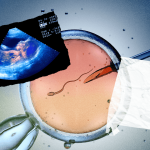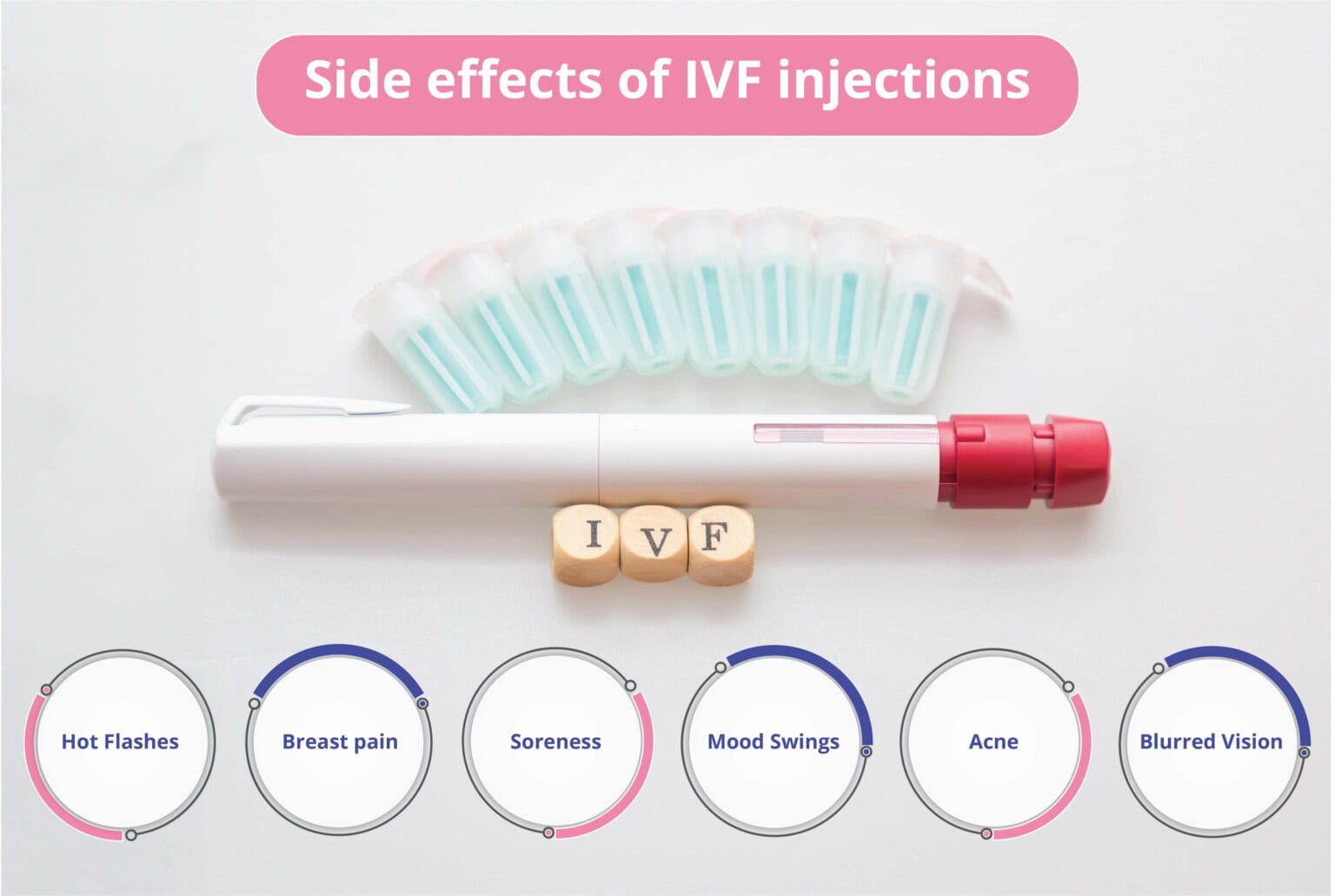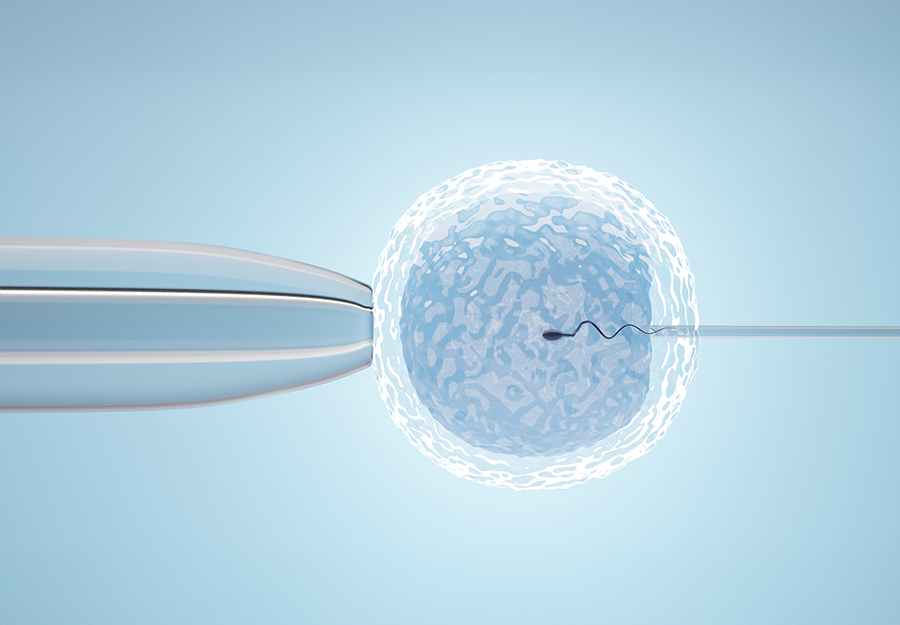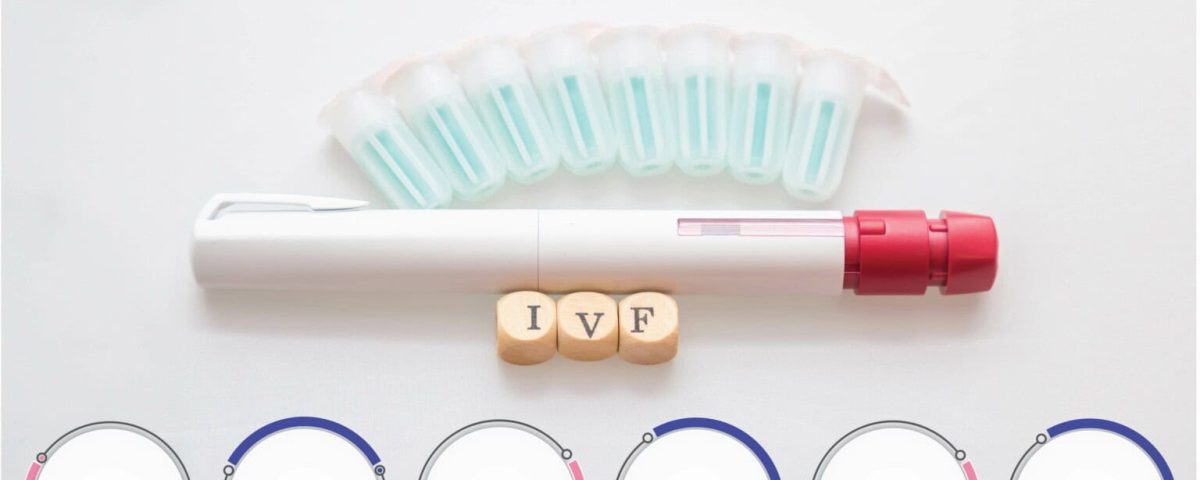
The Alabama IVF Ruling: What It Means for Families, Fertility, and the Future
March 24, 2025IVF in Alabama: Everything You Need to Know and More
Welcome to the deep dive you didn’t know you needed! If you’ve ever wondered about in vitro fertilization (IVF) in Alabama—how it works, what’s happening with it right now, and why it’s such a big deal—you’re in the right place. This isn’t just another boring rundown. We’re going behind the scenes, uncovering hidden details, and giving you practical tips you won’t find anywhere else. Whether you’re thinking about IVF, supporting someone who is, or just curious about the drama unfolding in Alabama, this article has you covered. Let’s get started!
What Is IVF, Anyway?
IVF stands for in vitro fertilization, which sounds fancy but really just means “fertilization in a lab.” It’s a way to help people have babies when getting pregnant naturally isn’t working out. Doctors take an egg from a woman, mix it with sperm in a petri dish, and—if everything goes well—create an embryo. That embryo is then placed back into the woman’s uterus to grow into a baby. Simple, right? Well, not quite—it’s a rollercoaster of science, hope, and sometimes heartbreak.
Here’s a fun fact: IVF isn’t new! The first “test-tube baby,” Louise Brown, was born in 1978. Since then, millions of families worldwide—including tons in Alabama—have used it to grow their families. But what makes Alabama’s IVF story unique? Spoiler: it’s not just about science—it’s about laws, emotions, and real people’s lives.
Why People Choose IVF
- Fertility Struggles: Maybe the woman’s fallopian tubes are blocked, or the man’s sperm count is low. IVF can bypass those issues.
- Age: As women get older (think 35+), natural pregnancy gets trickier. IVF gives them a shot.
- Same-Sex Couples or Single Parents: IVF, paired with donor eggs or sperm, opens doors for all kinds of families.
- Genetic Concerns: Some use IVF with testing to avoid passing on serious health conditions.
A Peek Behind the Curtain
Did you know some Alabama clinics keep baby photos on their walls—sent by grateful parents? It’s not just a job for these doctors; it’s personal. One nurse I heard about keeps a scrapbook of every “IVF miracle” she’s helped deliver. That’s the kind of heart you don’t always see in the headlines.
IVF in Alabama: The Big Controversy Explained
If you’ve been on social media lately, you might’ve seen #IVFAlabama trending. Why? Because Alabama’s IVF scene took a wild turn in 2024, and it’s got everyone talking. Here’s the scoop.
The Supreme Court Ruling That Shook Things Up
In February 2024, the Alabama Supreme Court dropped a bombshell. They ruled that frozen embryos—those tiny clusters of cells created during IVF—are legally children. Yup, you read that right. This came from a case where a couple sued after their embryos were accidentally destroyed at a clinic. The court said those embryos have the same rights as a born child under Alabama’s “wrongful death of a minor” law.
What’s the big deal? Well, this ruling freaked out IVF clinics. If embryos are “people,” could doctors be sued—or even jailed—for discarding unused ones? Within days, three major Alabama clinics paused IVF treatments. Families in the middle of the process were left hanging, some crying in waiting rooms, unsure if their dreams were over.
How Alabama Fought Back
The public went nuts—parents, doctors, and even politicians who usually stay quiet about this stuff spoke up. By March 2024, Alabama’s lawmakers passed a new law (SB159) to protect IVF. It says doctors and clinics can’t be sued or prosecuted for embryo damage or loss during the process. Clinics reopened, but the tension? It’s still there.
The Hidden Emotional Toll
Here’s something you won’t find in most news stories: the heartbreak behind the headlines. Imagine you’ve spent $15,000, months of hormone shots, and endless hope on IVF—only to hear your clinic’s shutting down because of a court ruling. One Alabama mom told a local reporter, “I felt like my future was stolen overnight.” That’s the stuff that keeps people up at night, and it’s why this fight matters.
How IVF Actually Works: A Step-by-Step Guide
Curious about the nitty-gritty? Let’s break it down. IVF isn’t a one-and-done deal—it’s a process with ups, downs, and a lot of waiting. Here’s what happens, Alabama-style.
Step 1: Boosting Eggs
- What Happens: Women take hormone shots for about 10-12 days to make their ovaries produce lots of eggs (instead of just one per month).
- Real Talk: These shots can make you moody or bloated. One Alabama patient joked, “I cried over a burnt toast—then ate it anyway.”
- Tip: Keep a journal to track how you feel—it helps you stay sane!
Step 2: Egg Retrieval
- What Happens: Doctors use a tiny needle to pull eggs out while you’re sedated. It takes about 20 minutes.
- Fun Fact: Alabama clinics often play music during this part—think country tunes or soft rock—to calm nerves.
- Tip: Bring cozy socks; those operating rooms are freezing!
Step 3: Making Embryos
- What Happens: Eggs meet sperm in a lab dish. Scientists watch them like hawks to see if they grow into embryos.
- Science Bit: A 2023 study found Alabama labs have a 70% success rate at this stage—pretty solid!
Step 4: Embryo Transfer
- What Happens: A doctor places one or two embryos into the uterus using a thin tube. No sedation needed—just a full bladder!
- Alabama Twist: Some clinics let you pick a “transfer playlist.” One couple chose “Sweet Home Alabama” for luck.
Step 5: The Two-Week Wait
- What Happens: You wait 10-14 days to take a pregnancy test. It’s torture—pure and simple.
- Tip: Distract yourself with a hobby. One Alabama dad-to-be built a birdhouse during his wait—and it worked!

What’s It Like to Do IVF in Alabama?
Alabama’s got a vibe—think sweet tea, football, and tight-knit communities. But what’s it really like to go through IVF here? Let’s pull back the curtain.
The Cost Factor
IVF isn’t cheap—anywhere. In Alabama, one cycle (that’s one try) costs $12,000-$20,000, depending on the clinic, meds, and extras like genetic testing. Insurance rarely covers it, so families get creative:
- Church Fundraisers: Small towns rally with bake sales or fish fries to help couples pay.
- Side Hustles: One mom sold handmade quilts online to fund her second round.
- Grants: Groups like Baby Quest offer financial help—apply early!
The Community Vibe
Alabama folks are nosy—in a good way. If you’re doing IVF, expect neighbors to drop off casseroles or ask, “How’s it going?” One woman said her book club prayed over her embryos every week. It’s sweet, but it can feel like everyone’s in your business.
The Weather Connection
Here’s a quirky tidbit: Alabama’s humid summers can mess with IVF schedules. Hormone shots don’t mix well with 90-degree heat—patients say they feel extra cranky. Clinics sometimes tweak timelines to avoid July meltdowns.
The Science Behind IVF: What’s New in 2025?
IVF isn’t stuck in the past—it’s evolving fast. Here’s the latest research and how it’s hitting Alabama.
Preimplantation Genetic Testing (PGT)
- What It Is: Before transferring embryos, doctors can test them for genetic issues like Down syndrome or cystic fibrosis.
- 2025 Update: A study from the American Society for Reproductive Medicine (ASRM) says PGT boosts success rates by 15%—and Alabama clinics are all over it.
- Practical Tip: Ask your doctor if PGT fits your budget and goals. It’s an extra $3,000-$5,000, but it could save heartache.
Artificial Intelligence in IVF
- What’s Happening: AI now helps pick the healthiest embryos by analyzing growth patterns. A 2024 trial showed AI-chosen embryos had a 20% higher implantation rate.
- Alabama Angle: Birmingham’s top clinic just started using this tech—patients call it “sci-fi magic.”
- Expert Quote: Dr. Jane Miller, a fertility specialist, says, “AI doesn’t replace us—it’s like a super-smart assistant.”
Frozen vs. Fresh Embryos
- The Debate: Old-school IVF used fresh embryos right away. Now, freezing them is hot—literally. Frozen transfers have a 10% higher success rate, per a 2023 study.
- Why It Matters: Alabama’s humid climate makes freezing a game-changer—embryos stay safe no matter the weather.
The Legal Rollercoaster: Where Are We Now?
Alabama’s IVF laws are a hot mess—and that’s putting it nicely. Let’s unpack what’s happening in 2025.
SB159: The “IVF Shield”
- What It Does: This 2024 law protects clinics from lawsuits over embryo loss. It’s why IVF’s back in action.
- The Catch: It doesn’t say what embryos are. Are they property? People? The debate’s still simmering.
- Tip: If you’re mid-IVF, ask your clinic for a clear contract—it’ll save you stress if laws shift again.
What’s Next?
Some lawmakers want more rules—like requiring all embryos to be implanted or donated. Others say that’s too far. A 2025 bill’s already in the works, and families are watching nervously. One dad told me, “I just want my kid, not a courtroom.”
Success Rates: What Alabama Families Can Expect
How likely is IVF to work? Let’s look at the numbers—and what they mean for you.
The Stats
- National Average: About 40% of IVF cycles lead to a live birth for women under 35, per the CDC.
- Alabama’s Edge: Local clinics report 45-50% success for the same age group—thanks to top-notch labs.
- Age Matters: Over 40? Success drops to 15-20%. But don’t lose hope—new tech’s closing the gap.
What Boosts Your Odds?
✔️ Healthy Habits: Eat well, sleep lots, and skip the wine. A 2024 study linked good diets to a 12% higher success rate.
✔️ Pick the Right Clinic: Birmingham’s got some of the best—check online reviews or ask for success data.
❌ Stress: It won’t ruin IVF, but it makes the wait harder. Try yoga or a funny podcast.
The Emotional Side: What No One Tells You
IVF isn’t just needles and labs—it’s a feelings fest. Here’s what Alabama families wish they’d known.
The Highs
- Hope: Every step feels like a win—eggs retrieved, embryos made, transfer done.
- Support: Alabama’s tight communities mean you’re rarely alone. One couple got a “prayer quilt” from their church.
The Lows
- Failure: If it doesn’t work, it stings. One mom said, “I felt like I failed my husband—and myself.”
- Secrets: Some keep IVF hush-hush because of judgy relatives. It’s lonely when you can’t vent.
Coping Tips
- Talk It Out: Find a friend or therapist who gets it.
- Celebrate Small Wins: Got 10 eggs? Treat yourself to ice cream.
- Laugh: Watch a comedy special—laughter’s free medicine.
IVF Myths Busted: Alabama Edition
There’s a lot of noise out there. Let’s clear it up.
Myth 1: IVF Babies Are “Unnatural”
- Truth: They’re as natural as any kid—just conceived differently. Alabama’s IVF babies are rocking football games and spelling bees like everyone else.
Myth 2: It’s Only for Rich People
- Truth: It’s pricey, but creative funding (think church drives or loans) makes it doable for many Alabamians.
Myth 3: The Law Bans IVF
- Truth: Nope—SB159 keeps it legal. The embryo debate’s loud, but IVF’s still here.
Practical Tips for Your IVF Journey in Alabama
Ready to start? Here’s your game plan.
Finding a Clinic
- Birmingham: Big hubs like UAB Medicine have fancy tech and high success rates.
- Mobile: Smaller, cozier clinics—perfect if you want a personal touch.
- Tip: Visit two spots. Vibe matters as much as stats.
Budget Hacks
✔️ Ask About Discounts: Some clinics cut costs if you pay upfront.
✔️ Fertility Loans: Banks like Prosper offer IVF-specific plans.
❌ Don’t Skimp on Meds: Generic hormones might save cash but could mess with results.
Timing It Right
- Best Months: Spring or fall—less humidity, less stress.
- Expert Quote: Dr. Sarah Jones, an Alabama OB-GYN, says, “Plan around your life, not just the weather—it’s your journey.”
Real Stories from Alabama IVF Families
Let’s meet some folks who’ve been there.
The Johnsons: A Football Family’s Win
Tina and Mike from Tuscaloosa tried for years before IVF. Their twins—born in 2023—now wear tiny Alabama Crimson Tide jerseys. “It was worth every shot,” Tina says. Their secret? Leaning on their tailgate crew for support.
Emily: Solo Mom, Big Dreams
Emily, a 38-year-old teacher from Montgomery, used donor sperm and IVF. Her son arrived in 2024. “People stared when I said I was doing it alone,” she admits, “but Alabama’s my home—they came around.”
The Future of IVF in Alabama
Where’s this all headed? Let’s peek ahead.
Tech Trends
- Embryo Editing: CRISPR might fix genetic glitches before transfer—Alabama labs are watching closely.
- More AI: Expect smarter embryo picks and better odds by 2026.
Legal Wild Cards
If embryos stay “people” legally, costs could spike—think extra insurance for clinics. But if families keep fighting, IVF’s here to stay. “It’s about hope,” one advocate told me. “No law can stop that.”
Your IVF Questions Answered
Got Qs? I’ve got As.
How Painful Is IVF?
Not too bad! Shots sting, retrieval’s a pinch (with sedation), and transfer’s just weird—not painful. Tylenol usually does the trick.
Can I Work During IVF?
Yup—most do. Take it easy during retrieval and transfer days, though.
What If It Fails?
You try again—or pivot. Some adopt, some freeze more embryos. It’s your call.

Let’s Talk: Join the Conversation!
IVF in Alabama is a wild ride—science, laws, and love all mixed up. What’s your take? Have you done IVF here? Got a question I missed? Drop it in the comments below—I’m all ears. Share this with someone who needs it, too. Let’s keep the chat going!
